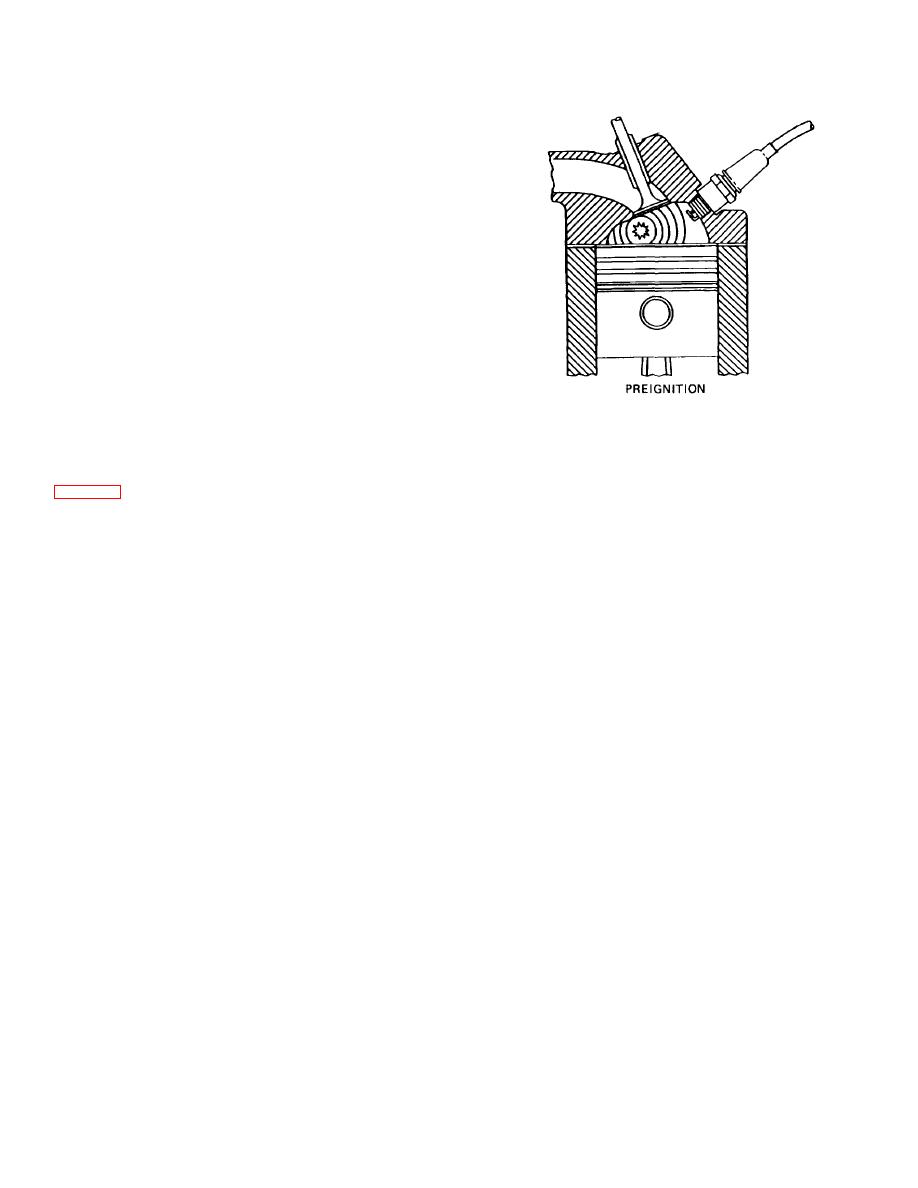
| Tweet |

Custom Search
|
|

|
||
 TM 9-8000
verters, however, has created a need for a higher octane
lead-free gasoline that is produced by more careful
refining processes and numerous substitutes for lead.
Lead-free gasolines to date, however, do not have the
antiknock qualities of leaded ones. Modern automotive
engines made for use with lead-free gasoline, therefore,
must be designed for lower octane ratings.
e. Other Causes for Knocking.
(1) Low-octane fuel is not the only reason for
knocking. Anything that adds heat or pressure to the last
part of the mixture to burn within a cylinder will aggravate
detonation and also result in knocking. That is why the
compression ratio of a gasoline engine has an upper
limit. When the ratio is raised too high, the immediate
result is detonation caused by excessive heat from the
additional compression.
Under certain conditions,
excessive spark advance, lean fuel mixtures, and
defective cooling systems are a few of the many causes
Figure 4-78. Preignition.
of detonation.
Preignition is an igniting of the air-fuel mixture during
(2) Preignition is another cause for knocking
compression before the spark occurs and is caused by
some form of hot spot in the cylinder, such as an
be confused with detonation.
overheated exhaust valve head or spark plug, or a
glowing piece of carbon.
Preignition can lead to
detonation, but the two are separate and distinct events.
TA233438
4-55/(4-56 blank)
|
||
 |
||